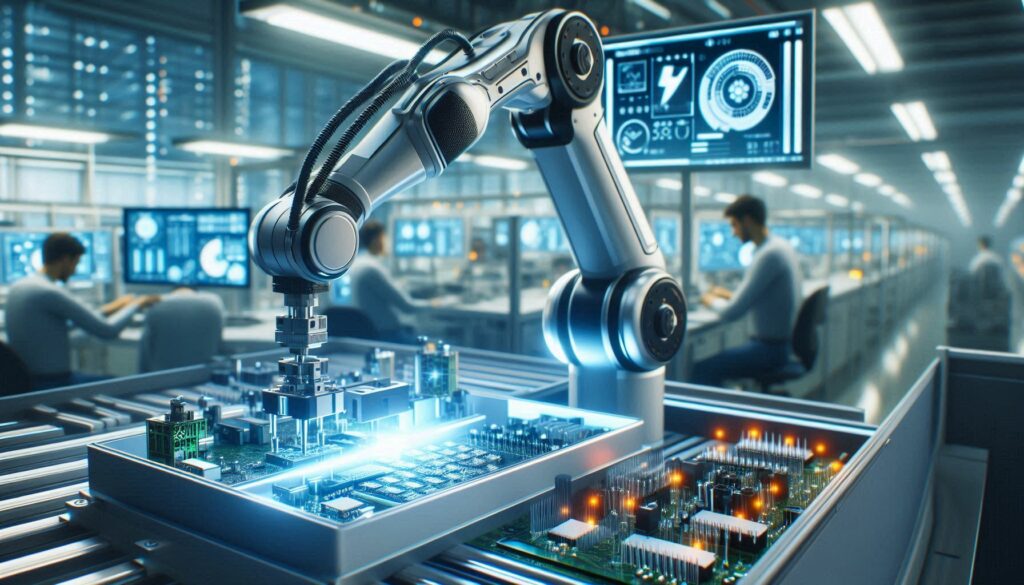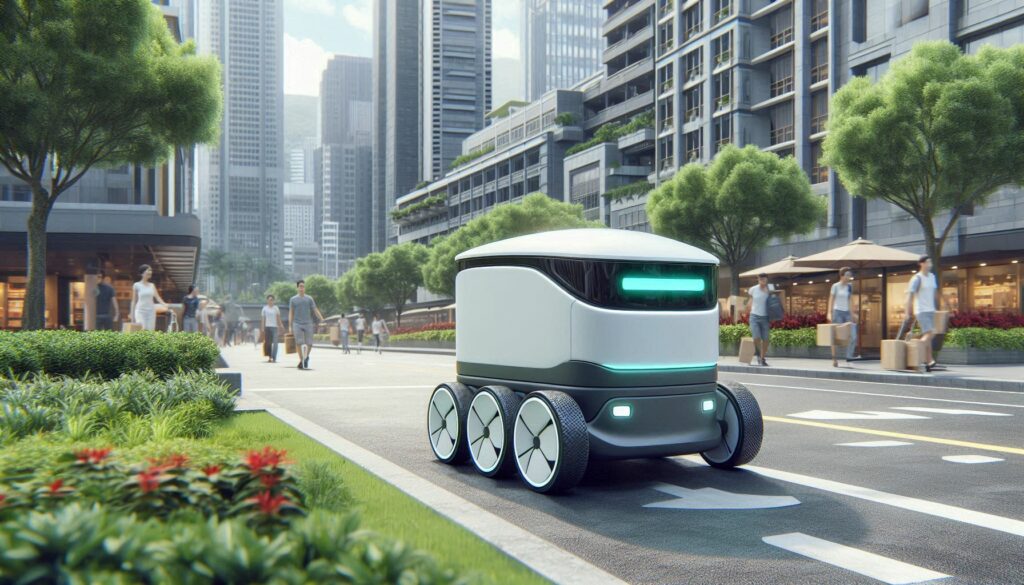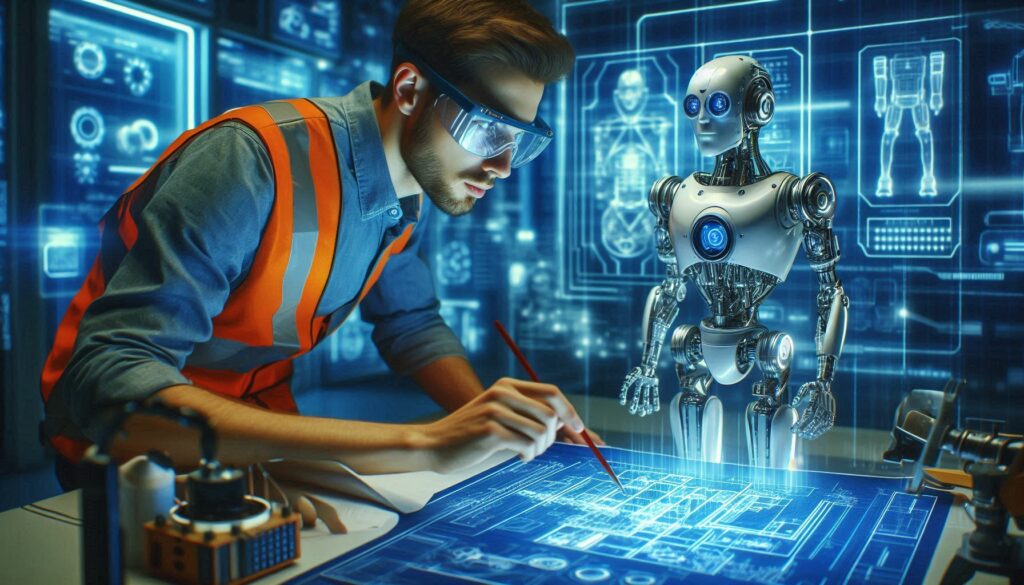
AI CERTS
6 months ago
AI-Driven Robotics Learning Shaping Future Innovation
Artificial Intelligence (AI) is revolutionizing the world of robotics, enabling machines to learn, adapt, and perform tasks with precision and autonomy. AI-driven robotics learning merges robotics with advanced AI models, enhancing the capabilities of robots in diverse fields such as healthcare, manufacturing, logistics, and education. This article dives into how AI is shaping robotics learning, its real-world applications, challenges, career prospects, and the best certifications available for aspiring professionals.

What is AI-Driven Robotics Learning?
AI-driven robotics learning refers to the integration of machine learning (ML), neural networks, and reinforcement learning into robotics. This process allows robots to improve their performance through experience, just like humans. By using AI algorithms, robots can learn from their environment, adapt to changing conditions, and automate complex tasks.
The learning approaches employed include:
- Supervised Learning: Robots learn using labeled datasets provided by humans.
- Unsupervised Learning: Robots identify patterns in data without human intervention.
- Reinforcement Learning: Robots learn through trial and error, optimizing their actions based on rewards.
This blend of AI and robotics is transforming how industries operate and setting new standards in automation.
Real-World Applications of AI-Driven Robotics Learning
AI-powered robots are finding applications across various industries, delivering efficiency and accuracy. Below are some prominent examples:
1. Healthcare: Precision Surgeries and Elderly Care
Robots powered by AI assist in performing minimally invasive surgeries, improving precision and reducing human error. In elderly care, AI robots offer companionship, monitor health parameters, and ensure medication adherence.
2. Manufacturing: Smart Factories
AI-driven robots enhance production efficiency by automating assembly lines and conducting quality inspections in real time. They can predict equipment failures through predictive maintenance, minimizing downtime and repair costs.
3. Logistics: Automated Warehousing and Delivery
In logistics, AI-enabled robots are used for warehouse management—sorting, packing, and transporting goods. Autonomous delivery robots optimize last-mile delivery, ensuring packages reach customers efficiently.
4. Education: Robotic Tutors and Learning Assistants
AI-powered robots act as teaching assistants in classrooms, making personalized learning possible. These robots can adapt to students' learning paces and provide real-time feedback to improve outcomes.
Conclusion for this Section:
AI-driven robotics is already transforming industries by reducing errors, improving efficiency, and enhancing human experiences. The potential for these robots to automate repetitive and dangerous tasks while adapting to new challenges is reshaping the future of work.
In the next section, we’ll explore how AI enables robots to learn from their environment and the challenges involved in robotics learning.
How AI Enables Robots to Learn and Adapt
The learning and adaptability of robots are powered by various AI models and technologies. Below are some key enablers:
1. Deep Learning Models
Neural networks allow robots to recognize patterns in images, audio, and data, enabling tasks like facial recognition and object detection.
2. Reinforcement Learning
With this model, robots receive feedback from their actions, learning which strategies are most effective for achieving goals.
3. Natural Language Processing (NLP)
AI-driven robots with NLP capabilities can understand and respond to human speech, making them ideal for customer service roles.
4. Sensor Integration
Robots equipped with AI can use sensors to perceive their surroundings, allowing them to navigate autonomously and respond to obstacles.
Conclusion for this Section:
AI's integration into robotics enables machines to perform tasks that were once thought impossible, from autonomous driving to conversational interactions. Next, we’ll look at the challenges facing AI-driven robotics learning.
Challenges in AI-Driven Robotics Learning

Despite the rapid growth, there are challenges to achieving seamless robotics learning with AI.
1. Data Dependency
Robots require large datasets to learn effectively, but gathering and labeling data is time-consuming and costly.
2. Ethical and Safety Concerns
AI robots must be designed with safety protocols to prevent accidents and misuse, especially in industries like healthcare and transportation.
3. High Development Costs
Building and training AI-powered robots require significant financial investment, limiting access to smaller organizations.
4. Adaptability Issues
Robots trained in specific environments may struggle to adapt to unexpected changes, such as weather conditions in outdoor delivery.
Conclusion for this Section:
While AI-driven robotics presents promising opportunities, overcoming these challenges will require collaboration among engineers, policymakers, and ethicists. Up next, we’ll explore the career prospects and certifications available in this field.
Top Certifications for AI-Driven Robotics Learning
Earning a certification in AI robotics equips professionals with in-depth knowledge and practical experience to thrive in this innovative field. Below are some of the most highly recommended certifications:
1. AI+ Robotics Certification – AI CERTs
This certification focuses on the programming, deployment, and management of AI-driven robots in real-world scenarios.
- Key Features: Hands-on modules on reinforcement learning, robotics coding, and machine learning algorithms.
- Ideal for: Professionals looking to specialize in robotics engineering or AI-powered automation.
- Duration: 3-6 months with both online and hybrid learning options.
- Certification Link: AI CERTs
- Career Impact: Graduates can secure roles such as Robotics Engineer, Automation Specialist, and AI Consultant in top organizations.
2. Certified Robotics Programmer (CRP)
This certification emphasizes robotics software programming, with a focus on integrating AI models into robotic systems.
- Key Features: Comprehensive training in robotics software platforms, ROS (Robot Operating System), and Python.
- Ideal for: Aspiring robotics engineers who want to combine AI development with software programming.
- Duration: 6 months with real-world projects as part of the curriculum.
- Certification Link: CRP
- Career Impact: This certification is recognized globally, leading to roles like Robotics Developer or AI Robotics Software Engineer.
3. AI & Machine Learning Specialization – Coursera
Coursera’s specialization offers a deep dive into AI technologies, including machine learning for robotics.
- Key Features: Modules on supervised and unsupervised learning, neural networks, and practical robotics applications.
- Ideal for: Those interested in building a strong foundation in AI and its applications in robotics.
- Duration: 4-5 months with self-paced learning options.
- Certification Link: Coursera
- Career Impact: Graduates often pursue roles in automation and AI engineering, making this a versatile option.
4. MIT Robotics and AI Program
This program from the prestigious MIT covers advanced robotics and AI applications, focusing on both technical and ethical aspects.
- Key Features: In-depth modules on machine vision, robotic control systems, and AI ethics.
- Ideal for: Professionals aiming to work at the cutting edge of robotics innovation.
- Duration: 6-12 months with both part-time and intensive options.
- Certification Link: MIT
- Career Impact: Graduates from this program often secure leadership roles in AI research and development teams.
5. AWS Machine Learning Certification
This cloud-focused certification is ideal for professionals who want to build AI robotics solutions using Amazon Web Services (AWS).
- Key Features: Covers cloud-based ML models, robotics applications, and hands-on practice with AWS tools.
- Ideal for: Engineers aiming to develop scalable AI-driven robotics systems for enterprises.
- Duration: 3 months with access to AWS learning labs.
- Certification Link: AWS
- Career Impact: This certification opens up roles such as Cloud Robotics Engineer and AI Automation Consultant.
Conclusion for this Section:
These certifications not only validate your expertise but also provide practical skills in AI-driven robotics, opening doors to high-paying roles in automation and engineering. Next, we’ll discuss the future of AI robotics.
The Future of AI-Driven Robotics Learning

The future of AI robotics holds immense potential, with rapid advancements in multiple areas:
1. Human-Robot Collaboration
We are moving towards a future where robots will work alongside humans, taking over repetitive tasks while humans focus on creative problem-solving.
2. Autonomous Vehicles and Smart Cities
AI-powered robots will play a crucial role in autonomous transportation and the development of smart cities.
3. Advanced Healthcare Robotics
Future AI robots will be capable of performing even more complex surgeries and offering personalized care to patients.
Conclusion for this Section:
AI robotics is set to become more adaptive, intuitive, and integrated into everyday life. The key to thriving in this space lies in continuous learning and embracing technological change.
Conclusion
AI-driven robotics learning is revolutionizing industries by enabling robots to learn, adapt, and automate complex tasks. From healthcare to logistics, the impact of AI on robotics is transforming traditional workflows and paving the way for innovation. Pursuing certifications in AI robotics equips professionals with the skills needed to excel in this evolving field.
Start your journey with an AI+ robotics certification today and be part of the automation revolution!